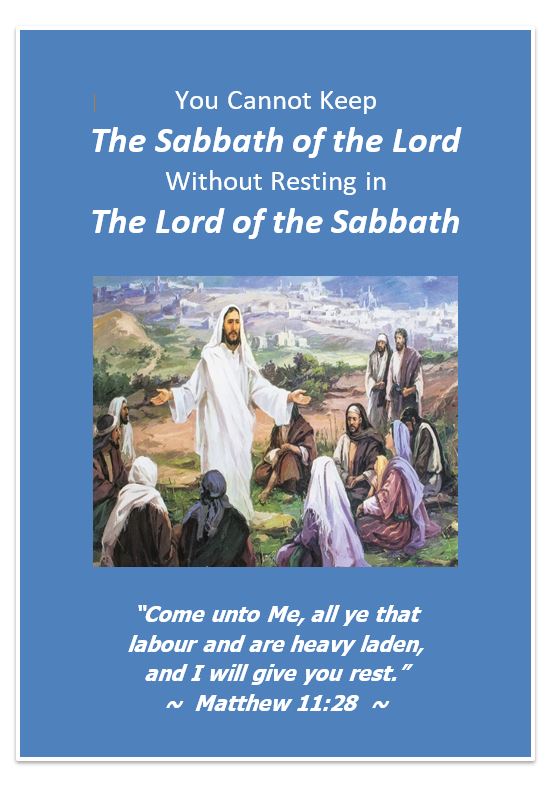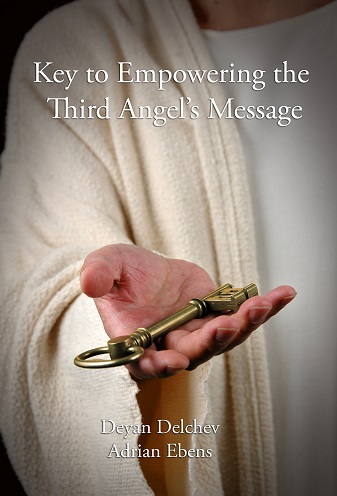'Christ the Firstfruits'
'Christ the Firstfruits' by E. J. Waggoner
"In your article, 'Moses and Elijah,' in PRESENT TRUTH of October 16, I read that the saints who will be raised from the dead at Christ's coming were recognised by Moses, who had died, but who, raised from the dead, appeared in glory. If that be so, how can Christ be 'the firstfruits of those that slept'? 1 Cor. xv. 20. Again, 'Christ the firstfruits; afterward they that are Christ's at His coming.' Verse 26. See also Rev. i. 5. Where we read that Jesus Christ is 'the first begotten of the dead.' I should like more light upon this matter, and I feel sure that all readers of your valuable paper will be interested in it. It does seem a mystery. May God grant you the light on this subject."
Amen. It is indeed a mystery; for it is the very essence of the Gospel, which is the mystery of God. But we may be sure that God will give us the light; for since the mystery is "the glorious Gospel of Christ" it carries the light in itself.
You are not the first one who has been troubled over this matter. But why is it that you have never thought of the mystery until the resurrection of Moses is mentioned? Why should it seem more strange, or more in opposition to the texts you have quoted, that Moses should be raised from the dead before the crucifixion and resurrection of Jesus, than that others are raised? Elijah raised the widow's son to life (1 Kings xvii. 17-38), and Elishah brought the Shunammite's dead child back to life. 2 Kings iv. 18-37. Besides these, the Gospels record many instances of the dead being brought to life by Jesus, before His own resurrection. Recall, for instance, the daughter of Jairus, the son of the widow of Nain, and Lazarus. These cases do not, of course, lessen the mystery, but they show that the fact that Christ is "the firstfruits of them that slept," is not incompatible with the resurrection of Moses.
I know that you will at once feel inclined to say that Moses appeared in glory, whereas the others, as far as we have any record, appeared only on this earth; but you must remember that the essential thing is the fact of the resurrection, and not where they appeared. A person who is brought to life from the dead, and who remains on this earth, is just as effectually raised to life as if he were taken to heaven. Moreover, we have the cases of Enoch and Elijah, who were both taken to heaven alive, one of whom appeared with Moses in glory. Now the power of death was broken in these two cases, just as surely as if they had died and had been raised from the dead. "Death passed upon all men." Rom. v. 12. Exactly the same power is shown in the translation of the living as in the raising of the dead. The changing of the living from mortality to immortality, from corruption to incorruption, is precisely the same act as the raising of the dead to immortality.
These things only increase the mystery, yet they help to give us light in knowledge, as might be expected from a mystery which is itself glory. They suggest to us what is involved in the thought that Christ is the firstfruits and the first begotten of the dead. Rom. i. 4 will help us still further. Christ was "declared to be the Son of God with power, according to the Spirit of holiness, by the resurrection from the dead." The resurrection did not add anything to Christ's power, but only showed the power that He had before. It did not establish any new relation between Him and God,-did not make Him the Son of God,-but made that relation manifest. The power by which Christ was raised from the dead was the same power by which He was brought into the world. It was the same power by which He performed all His miracles, and, indeed, it was the power by which He lived His blameless life; for it was "according to the Spirit of holiness."
The very same mystery that attends the raising of the dead before the resurrection of Christ, the firstfruits, is equally great in another connection, namely, that of holy living. Jesus Christ is the Author and Pefecter of faith (Heb. vii. 2); "the fruits of righteousness," with which we are to be filled, "are by Jesus Christ unto the glory in praise of God" (Phil. i. 11); yet those were men of faith,-men who were righteous,-before the birth of Jesus of Nazareth. There you have the mystery; can you explain it?
To come directly to the root of the matter, we have only to recall the statement that Christ is "the Lamb slain from the foundation of the world." Rev. xiii. 8. "Who verily was foreordained before the foundation of the world, but was manifest in these last times for you who by Him do believe in God." 1 Peter i. 20, 21. Now since He was slain from the foundation of the world, it follows that He was also raised from that time, which is easy for us to believe when we grasp the fact that He is "the image of the invisible God, the firstborn of every creature; for by Him [literally, in Him] were all things created, that are in heaven, and that are in earth, visible and invisible; . . . and He is before all things, and by Him [in Him] all things consist." Col. i. 15-17.
A comparison of two or three texts will make it very plain that the resurrection of Jesus was a present reality in the days of Moses and David. First read Eph. iv. 8-10, where there cannot be the slightest doubt that the resurrection of Christ is spoken of: "When He ascended up on high, He led captivity captive [a multitude of captives], and gave gifts unto men. Now that He ascended, what is it but that He also descended first into the lower parts of the earth? He that descended is the same also that ascended up far above all heavens, that He might fill all things." This is a direct quotation from Ps. lxviii. 18, showing that the power of Christ as the great Emancipator from the grave was the joy of the psalmist.
Now compare Deut. xxx. 11-14 with Rom. x. 5-9. We see that the latter is merely a repetition of the former. Moses, in Deuteronomy, was describing the righteousness which is by faith, and said, as quoted by Paul, "Say not in thine heart, Who shall ascend into heaven? (that is, to bring Christ down from above); or, Who shall descend into the deep? (that is, to bring up Christ again from the dead). But what saith it? The Word is nigh thee, even in thy mouth, and in thy heart; that is, the Word of faith which we preach; that if thou shalt confess with thy mouth the Lord Jesus, and shall believe in thine heart that God hath raised Him from the dead, thou shalt be saved."
Here we see it plainly set forth that the keeping of the commandments, the life of righteousness, was possible in the days of Moses, as in all other days, only by the presence of the resurrection life of Jesus in the heart. "The reproach of Christ," which Moses chose, is the cross; and he, as well as Paul, could say: "I am crucified with Christ; nevertheless I live; yet not I, but Christ liveth in me; and the life which I now live in the flesh I live by the faith of the Son of God, who loved me, and gave Himself for me." Gal. ii. 20.
Do you now see light in the mystery? Do you not see that since "if any man be in Christ He is a new creature; old things are passed away; behold, all things are become new" (2 Cor. v. 17); the power of the cross and the resurrection is the power of creation? You now see that "that which was from the beginning" was "the Word of life," and that this life has been the light of every man that has come into the world? Do you not see that from Abel till our time the resurrection power is the only power by which men can be righteous? and does not this make you glad, in that you have the resurrection power to work righteousness in you?
God "quickeneth the dead, and calleth those things which be not as though they were" (Rom. iv. 17); because His Word is that which makes the things exist. Abraham saw and rejoiced in Christ's day (John viii. 56), and the power of the resurrection of the Messiah, who was to come through Isaac, was so really present in Abraham's time that it brought Isaac into being in order that He might be born of his line. Can you conceive of any greater mystery than that? And is it not a glorious mystery? Since "Jesus and the resurrection" had such power in the days of old, before He was born in Bethlehem of Judea, what may it not accomplish in us and for us now?





